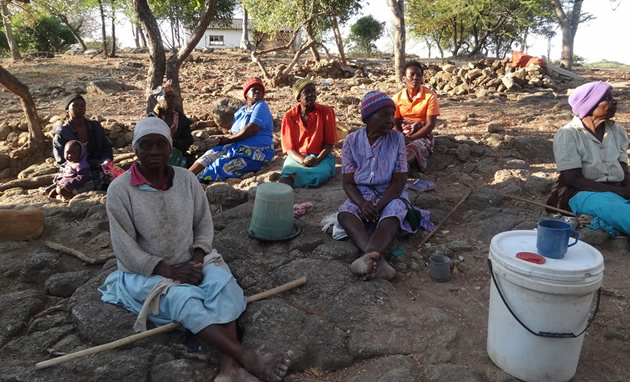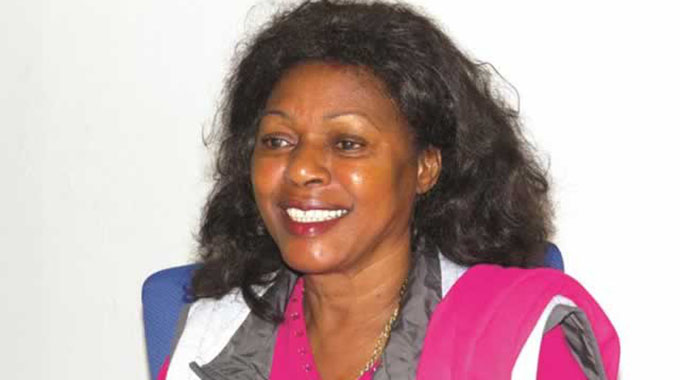PRISONERS of PREJUDICE. . . Witchcraft accusations drive ‘gogos’ into old people’s homes

 Ruth Butaumocho Gender Editor
Ruth Butaumocho Gender Editor
Mbuya Zhoakinyu Kembo from Malawi had been enjoying a peaceful life until her husband one day bluntly told her that he was taking a second wife. A few moons later he threw her out of their Marondera matrimonial home, accusing her of being a witch who had even “killed” five of her own children.
With her few belongings, Mbuya Zhoakinyu lived in the open for four years – a stone’s throw from the house that once belonged to her – enduring the wintry weather and wet nights during the rainy season.
Even her only surviving son turned a blind eye to her misfortunes, until a Good Samaritan advised her seek refuge at a nearby old people’s home, Ida Wako Old People’s Home in Marondera.
She has been confined to the home for over a decade.
“Uno, ndiwo watova musha wangu,” (This is now my home), she said during an interview recently.
Mbuya Zhoakinyu is one among several female octogenarians who are taking refuge in an old people’s home after being driven away from their matrimonial homes on allegations of witchcraft, in a society where beliefs in sorcery are still widespread.
Unlike before, when old people’s homes were considered a preserve for former foreign farm workers from neighbouring countries like Malawi and Mozambique who had nowhere to go after retirement, locals now constitute a good percentage of residents in these homes.
The majority of female residents at these homes are prisoners of prejudice, looking for a sanctuary after fleeing away from witchcraft allegations from relatives and friends.
Friction within polygamous marriages, death of one’s children, jealousy and even one’s barrenness, often trigger witchcraft allegations among the elderly in some parts of Zimbabwe.
In some instances such accusations can translate into violence and condemnation, leaving the victims with no option but to relocate or seek shelter elsewhere. And with the prevailing economic challenges, the majority of the octogenarians eventually turn to old people’s home for refuge after family and friends shut doors in their faces.
Despite their limited resources, these homes become their source of hope, offering them an opportunity to enjoy a tranquil and modest life.
Although Mbuya Zhoakinyu would have wanted to die peacefully among friends and relatives, she has since resigned herself to her fate at the home. She is content to have a roof above her head.
“Nemakore andakarohwa nechando nemvura ndiripanze, ndinotofara kuti pano ndakachengeteka (Having endured the harsh weather for years, I feel happy to be part of this community)”, she said.
For Mbuya Zhoakinyu, time has failed to heal wounds as she still begrudges her son for perpetuating the “falsehoods” about her involvement in witchcraft.
She also had no kind words for her husband – who died together with his new wife in a bus accident months after kicking her out from their matrimonial home.
While Mbuya Zhoakinyu openly spoke about his demise, that was not so for her fellow inmate Esther Tandi (82) from Chipinge, despite insinuations from inmates that her family ostracised her on allegations of witchcraft.
Having lost two of her three children, Mbuya Tandi decided to seek refuge at the Ida Wako Old People’s Home after realising that no one was willing to take care of her.
“My son is here in Marondera, but he won’t live with me because I am always sick. It is actually my brother who brought me here,” she said, refusing to shed more light on her circumstances.
Although a few opened up about the circumstances that left them destitute, the majority were evasive, merely saying they chose retiring homes, so that they could find comfort and retreat peacefully.
Elizabeth Manhondo (92), the longest-serving resident at Mutikizizi Old People’s Home in Bikita, left her home in Mapanzure to seek shelter at the residence after continued diatribes about her barenness.
“With no children of my own, villagers would often snide at me, calling me a witch, accusing me of causing my own barrenness and witchcraft.
“I could not endure the abuse anymore. I was never married, so I decided to come here so that I could be taken care of,” said Mbuya Manhondo, who is now blind, and relies on the benevolence of nine other female residents at the home for her daily errands.
Mutikizizi reveals a place of hardships, where the basics are very bare. One meal a day, inadequate clothing and lack of medication are what Mbuya Manhondo and 19 of her colleagues have to endure.
However, Mbuya Manhondo says she is better off living at the home than be exposed to vitriolic attacks from villagers.
“Kunangwa huroyi kunogwadza mwanangu. Ndotambura ndiripano (It is painful to be accused of being a witch. I would rather die here),” she said.
Owner and founder of the home, Reverend John Mutikizizi, said the home had become a sanctuary for several female octogenarians haunted by allegations of witchcraft from different communities.
“When the home started it used to house aliens who had nowhere to go after retiring as farm labourers and we rarely had locals within these groups.
“But now more locals than before are coming for assistance, an indication of the breakdown of the extended family coupled by witchcraft allegations,” he said.
He, however, revealed that the majority of local inmates were not keen to reveal the circumstances which left them homeless and with no family to care for them.
“Elderly women are coming to the centre from different parts of the country seeking shelter and we have to take them in against a backdrop of limited resources,” said Mr Mutikizizi.
HelpAge Zimbabwe programme manager Mr Adonis Faifi said most old people’s homes in Zimbabwe were recording a high number of locals in need of care.
“The majority of locals were never married, never had children and if they had, they are not able to care for them for one reason or the other,” he said.
Mr Faifi said most homes were facing a number of problems, chief among them lack of adequate food, clothing, medication and transport to ferry them to hospital or the mortuary when they die.
“The Government used to assist by giving each elderly $15 a month, but that money has not been coming in the last four years, making it difficult for most homes to provide basics,” he said.
Zimbabwe has got more than 50 old people’s home situated in different parts of the country, with the majority relying on donor funding for sustenance.
- Feedback: [email protected]








Comments